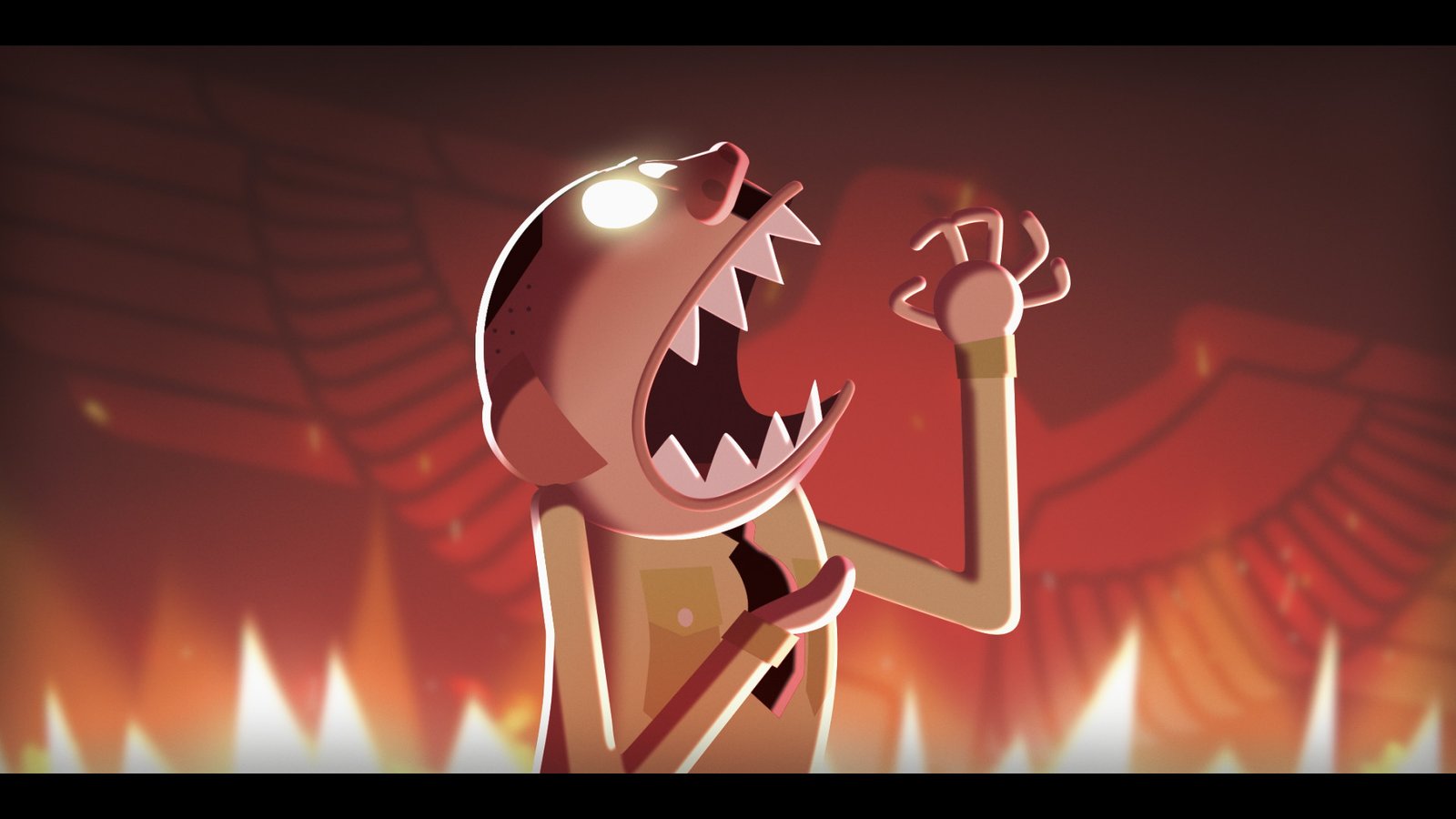In Love, Death, and Robots Episode “Alternate Histories” of the series, it delivers a unique and interactive storytelling experience. The episode invites viewers to explore various alternate versions of Adolf Hitler’s life and imagine how the world could have been different if certain historical events had unfolded in alternative ways.
At its core, “Alternate Histories” isn’t just a speculative history lesson; it’s also a commentary on love and death. The episode ingeniously weaves the themes of love and death into its multiple storylines. Each alternate history scenario not only portrays different fates for Hitler but also explores the love stories and deaths associated with him in these alternative realities.

Love, Death, and Robots Alternate Histories theme
Love, Death, and Robots “Alternate Histories” challenges us to think about the role of choices in shaping our world and the lives of individuals. It raises profound questions about the power of decision-making and the ripple effect those choices can have on both personal relationships and global events.
“Alternate Histories” stands out as a compelling episode in the Love, Death and Robots series. It invites us to explore the what-ifs of history, emphasizing the complex interplay of love, death, and the pivotal role of choices.
The brilliance of “Alternate Histories” lies in its ability to intertwine the themes of love and death with the exploration of different historical outcomes. In each scenario, the fate of Hitler is altered, leading to divergent love stories and ultimately different deaths. From romantic relationships with historical figures to comedic parodies, the episode keeps viewers engaged as they ponder the potential consequences of these altered timelines.

What do you think of Love, Death, and Robots “Alternate Histories”?
“Alternate Histories” masterfully challenges viewers to reflect on the significance of choices in shaping both personal lives and global events. The episode serves as a vivid reminder that decisions, no matter how small, have a ripple effect. These choices can impact personal relationships and, in the case of Hitler, the fate of nations. The episode asks us to consider the role of choice and consequence in our own lives, further deepening its relevance.




